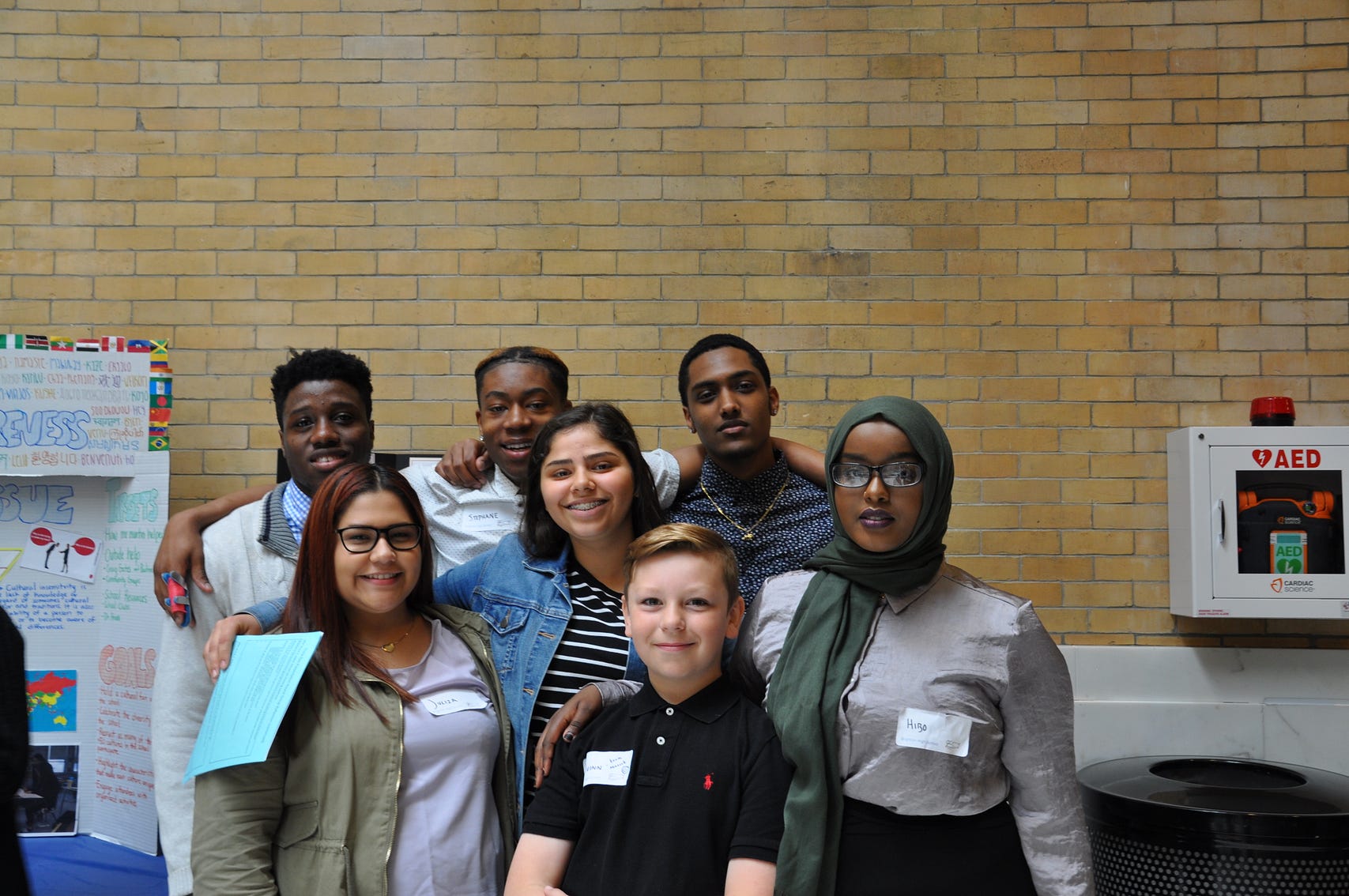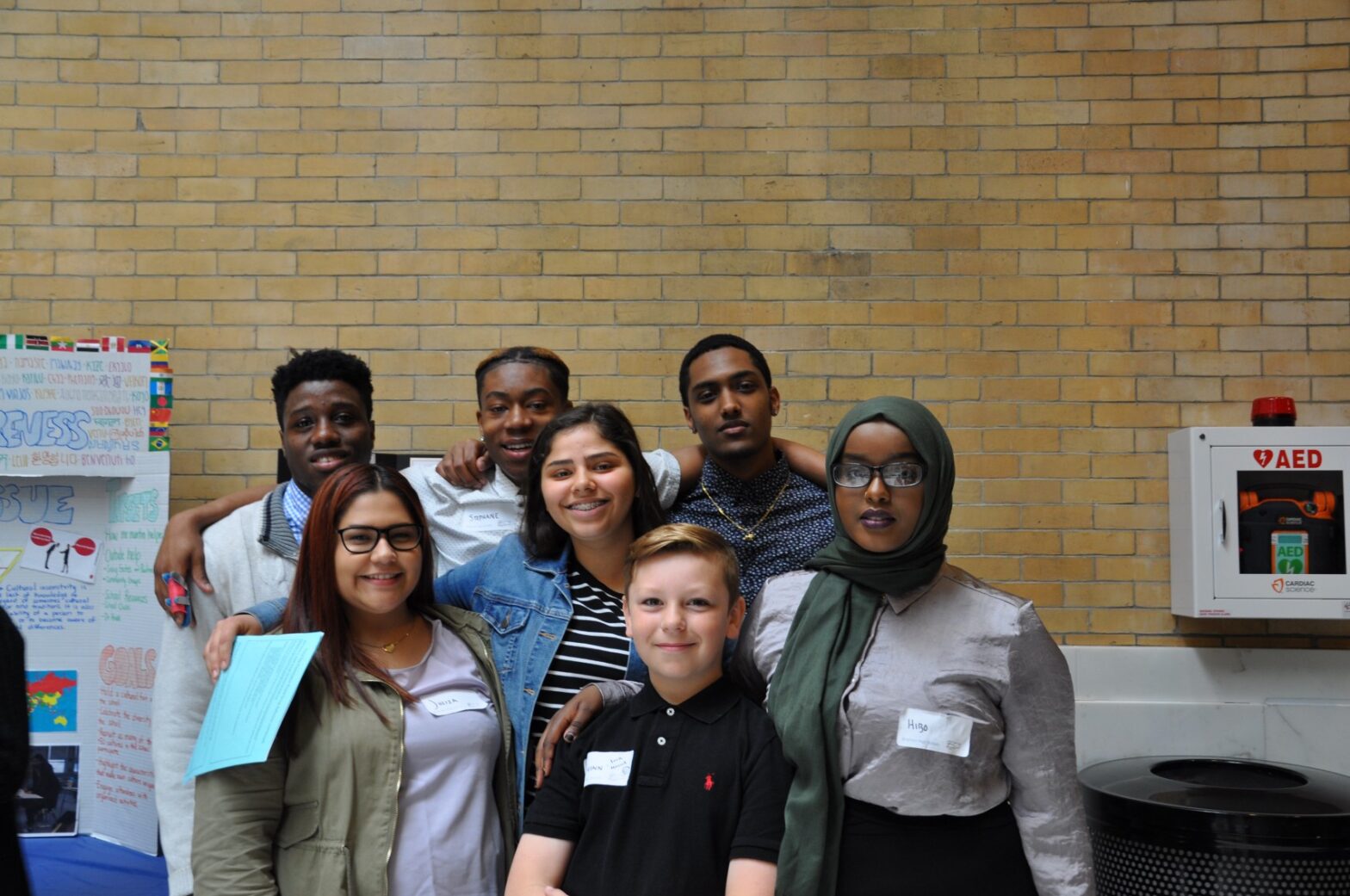by Nivetha Nagarajan, Development Associate
I was seven years old, in my second grade class, and we were voting on which book to read as a complement to our unit on democracy, citizenship, and American identity. I abstained from voting because I already knew I wasn’t an American citizen and wouldn’t have the right to vote in “real” elections — so why would my opinion matter on these subjects in class?
This was a very common experience in my daily life, growing up as a young immigrant without citizenship rights in America. I was confused about whether I could call myself an American despite having lived here most of my life, whether I had any right to speak up about social and political issues that affected me, or whether I could fully participate in civic spaces. Those questions were uncomfortable to ask myself and downright scary to talk about with others. So I never engaged with them in any real sense for most of my childhood and adolescence — I figured someone who wasn’t a citizen didn’t ever really need to think about what citizenship or democratic participation meant.
It’s a little known fact, however, that the word democracy actually has two meanings. In the more familiar, mainstream sense, it’s used to denote a particular form of government, where a clearly defined population, known as citizens, govern themselves through the election of representative leaders. However, according to its broader, ideological definition, it just refers to the general principle of political and social equality. In that sense, the principle of democracy can have so many applications and permeate so many activities beyond its usual perceived functions in government and the public sector. It follows that the role of a citizen goes beyond their interactions with these structures as well.
The mainstream conception of citizenship as a legal status is too narrow. By focusing on this definition of the word, we alienate many members of our communities from participating in public life. We need to expand how we use the word citizen to more deeply encompass the political, social, and ethical aspects of the identity. A good example is the way in which John Dewey, early 20th-century philosopher and author of Democracy and Education, used it, when he defined democracy as “a mode of associated living, of conjoint communicated experience” (Dewey, 1916, p. 87). Citizenship isn’t just a legal status — it’s a state of being where the interests of the collective are at the forefront of a citizen’s thought, belief, and action. This is more akin to the concept of global citizenship, and is the context in which Generation Citizen uses the word.
The concept of democratic citizenship is therefore applicable to every individual in a social group — whether that group is a classroom, a community organization, a company, or any other association of people with a shared aim, purpose, or identity. You are a citizen of your school, your workplace, your neighborhood, and your city. You are part of many civic collectives, and your subjective experience of these spaces is essential to their continued functioning and evolution. So it’s worth asking yourself — what are the broad issues affecting you in these spaces? What structures are working well, and which could be improved? Do you feel like a true citizen of these social groups, or do you feel like some voices are valued more than others? How can you advocate for that to change, if you feel like it should?
We live in a world that is increasingly interconnected and facing unprecedented challenges on a global scale, including political polarization, mass migration, and climate change, just to name a few. This makes it critical to integrate more reflection on questions about our role in the collective into our daily lives. Consensus building among large-scale groups of diverse individuals is really, really hard. It has also never been so urgently imperative. You might feel that because of your legal citizenship status, your minority status, your age, where you live, or any number of other factors, your individual experiences as a citizen of certain groups aren’t valued as much as those of others. This feeling is valid. Democratic systems (whether at the scale of a single classroom or an entire nation-state) can often be imperfect and unequal. But the catch is that disengaging from the process of improving them only contributes to continued marginalization. Your voice is absolutely essential to the collectives that you belong to (whether the collective acknowledges that or not), just as the collective is essential to your continued growth and prosperity as an individual (whether you acknowledge that or not). So, when faced with the choice of whether to engage with the messy process of collective social change or to give up on it entirely, ask yourself… what would a citizen do?

